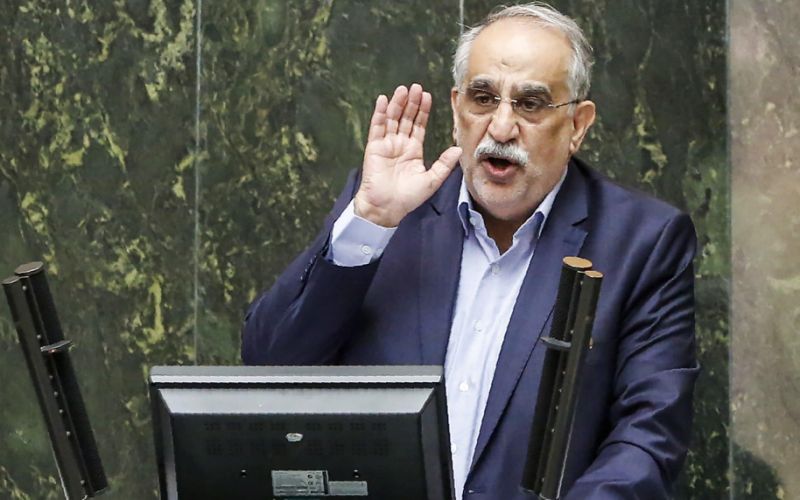September 21, 2018

The Majlis has fired Economy Minister Masud Karbasian in the latest blow to embattled President Hassan Rohani.
Karbasian was ousted when he got just 47 percent support in a Majlis vote of confidence August 26. He was the second cabinet minister sacked this month, following the ouster of Labor Minister Ali Rabii just 18 days earlier on August 8.
In the vote of confidence, 137 deputies voted to dump Karbasian, while he won the support of 121 deputies, and there were two abstentions.
The outcome sees him stripped of his post with immediate effect.
Karbasian took office after Rohani was re-elected last year. He had served just six days more than a year when he was sacked. He was supported by 84 percent of the deputies a year ago, but only 47 percent when he was fired.
Both Rabii and Karbasian lost their jobs essentially because of the sagging economy, though deputies were very vague in describing what they did wrong. The deputies who criticized them denounced the outcome of their work—high unemployment, rising inflation, the collapse of the rial—but failed to say expressly what they did wrong to cause such problems.
Rohani’s conservative opponents—who long-opposed his outreach to the West and efforts to improve civil liberties—say the primary blame for the poor economy lies with government corruption and mismanagement. However, when they are focused on foreign policy, they say the main cause of the dismal economy is US sanctions.
In addressing the Majlis to defend himself, Karbasian chose to attack the Americans, saying they have “targeted our entire economy and social fortifications.” He said, “America is seeking to block the country’s economic vessels to put people under pressure and stir dissatisfaction. They are after hitting the government and ruling system. You should believe that we are in an all-out economic war.”
But many disagreed. “Inefficiency and lack of planning have nothing to do with sanctions,” said one lawmaker, Abbas Payizadeh, in a speech ahead of the vote. “Wrong decisions have harmed the people and led to individuals looting public assets.”
Rohani can still count on the support of a sizeable Reformist bloc in the Majlis, but even some of its members have grown disillusioned.
“What have we done to our people? We made them miserable and wretched,” said Elias Hazrati, of the Reformist Hope faction that usually backs Rohani in the Majlis. “The middle class are moving toward poverty,” added Hazrati, who broke ranks to vote in favor of ousting Karbasian.
Hazrati said the government had failed to plan for the real pain of sanctions, which will hit when a second phase is introduced in November targeting Iran’s crucial oil sector. The first batch of sanctions took effect August 6. “We haven’t been prepared and we are not prepared now,” said Hazrati.
“The only person we could get our hands on was the economy minister. Otherwise, the president should have been sacked,” he said.
For now, Rohani remains protected by Supreme Leader Ali Khamenehi, who said that removing the president would “play into the hands of the enemy.”
Foreign Minister Moham-mad-Javad Zarif was dismissive of those who voted to sack Karbasian. “There are some in the country who, instead of laying the groundwork for using the opportunities presented by the nuclear agreement, chose a political fight. And this political fight leads to despair and disappointment.”
Business people point to several deep-rooted problems, from the debt-ridden banking sector to the outsized and opaque role of military-linked organizations in the economy.
Rohani recognizes those problems and has tried to tackle them, without much impact.
The deputies who introduced the motion to oust Karbasian had a laundry list of issues, including Karbasian’s alleged inability to manage the country’s economic affairs, failure to implement policies for bolstering the “resistance economy,” lack of proper supervision of financial transactions and inability to promote economic transparency.
Figures released by the Central Bank the day before the vote of confidence showed huge jumps in the cost of essential goods compared with a year ago. Dairy products are up by a third, chicken by more than 20 percent and fresh fruit by 71 percent.